Brexit: the pros and cons of leaving the EU
The arguments for and against Britain’s decision to leave the European Union
Two years after the UK formally left the European Union on 31 January 2020, and a year after the country officially exited the single market and customs union, the long-term benefits and costs of Brexit are still far from clear.
To mark the occasion Prime Minister Boris Johnson released plans for a so-called Brexit Freedoms Bill, which the government says will “cut £1bn of red tape for businesses, ease regulatory burdens” and ultimately clear the hurdles that are blocking its “mission to unite and level up the country”.
In a celebratory article in the Daily Mail, Johnson argued that on Brexit’s second anniversary, “we have all kinds of reasons to celebrate our new freedoms”, hailing the “very big things” the UK has achieved since leaving the bloc.
The Week
Escape your echo chamber. Get the facts behind the news, plus analysis from multiple perspectives.

Sign up for The Week's Free Newsletters
From our morning news briefing to a weekly Good News Newsletter, get the best of The Week delivered directly to your inbox.
From our morning news briefing to a weekly Good News Newsletter, get the best of The Week delivered directly to your inbox.
“We have taken back control of our money, our borders and our laws. We have done more than 60 free trade deals,” Johnson claimed, as he hailed being out of the Common Agricultural Policy and the Common Fisheries Policy, and removed from “all the vexation and delay of EU procurement rules”.
But with many trade deals still to agree, and mammoth queues of lorries outside Dover, the road ahead could prove bumpy.
1. Sovereignty
For Brexiteers, sovereignty was seen as a simple win: even the most ardent Remainers had to admit that EU membership involved giving up some control over domestic affairs. They shared the view that EU institutions drained power from the UK parliament. For Leavers, exiting the EU would allow Britain to re-establish itself as a truly independent nation with connections to the rest of the world.
For Remainers, it would result in the country giving up its influence in Europe, turning back the clock and retreating from the global power networks of the 21st century. To them, EU membership involved a worthwhile exchange of sovereignty for influence: in return for agreeing to abide by EU rules, they said, Britain had a seat around the negotiating table and its voice was amplified on the world stage as a result.
A free daily email with the biggest news stories of the day – and the best features from TheWeek.com
This week Attorney General Suella Braverman said the new Brexit Freedoms Bill would be “key to us taking charge of our regained sovereignty”. It will mean the country can move away from “outdated EU laws” that resulted from “unsatisfactory compromises within the EU, some of which the UK voted and lobbied against – but was required to adopt without question”.
And, nearly a year after Johnson set out his plans for a Global Britain, Rusi research fellow Ed Arnold said the current crisis in Ukraine will serve as an opportunity for the UK to “demonstrate exactly what Global Britain means and how it intends to develop as a post-Brexit European security actor”.
2. Northern Ireland
Before his resignation in December 2021, the Brexit Minister Lord Frost proposed reforms to the Northern Ireland Protocol, which was where he felt most of the “current friction” between Britain and the EU stemmed. Whether or not attempting to renegotiate the deal was an attempt to “wind the clock back to arguments that were lost in 2019”, as Peter Foster argued in the Financial Times, it is clear that the protocol as it stands is far from sufficient.
Northern Ireland has been plunged into a political crisis after Stormont’s agriculture minister, Edwin Poots of the DUP, ordered a halt to Brexit checks on goods coming into Northern Ireland from Great Britain, reported the BBC.
That was followed by the resignation of the DUP First Minister Paul Givan. “The DUP said Givan’s departure, which is effective immediately, was in protest at the Northern Ireland protocol, which creates a trade border between the country and the rest of the UK,” said The Guardian.
Under power-sharing rules, his resignation meant that Michelle O’Neill of Sinn Fein also had to step down to avoid one-party rule. The departure of the co-chairs of the Stormont executive “is a serious blow to local government and will freeze decision-making on budget matters, healthcare and energy bill grants”, said the paper.
3. Vaccine rollout
Johnson argued this week that the UK was the first to start vaccinating its citizens against Covid-19 “at least partly because of Brexit”. He claimed in the Daily Mail that the UK is “coming out of Covid faster than virtually any other European country” due to the successful vaccine rollout. “We were only able to do so because we chose to forge our own path as an independent United Kingdom,” he said.
However, this claim has come under scrutiny. The country’s ability to press ahead with a new vaccine was “actually permitted under EU law”, something that the UK’s own medicines regulator, the MHRA, has confirmed, said the BBC.
Under European law, a vaccine must be approved for use by the European Medicines Agency (EMA), “but individual countries can use an emergency procedure that allows them to distribute a vaccine for temporary use in their domestic market”, said the broadcaster. At the time, the UK was in the post-Brexit “transition period” and therefore still subject to EU rules anyway.
Although there certainly would have been “political pressure” for EU members to conform to a bloc-wide agreement to “move as one” on vaccines, there was no legal obligation to do so, said Channel 4 News’s FactCheck service.
4. Immigration
Under EU law, Britain could not prevent a citizen of another member state from coming to live in the UK, and Britons benefited from an equivalent right to live and work anywhere else in the bloc. The result was a huge increase in immigration into Britain, particularly from eastern and southern Europe.
When the referendum took place in June 2016, net migration hit an all-time record of 333,000, with net migration of EU citizens estimated to be 184,000. Many Remainers acknowledged that the pace of immigration had led to some difficulties with housing and service provision, but said the net effect had been overwhelmingly positive. By contrast, Brexiteers said Britain should “regain control” of its borders. Most wanted a substantial cut in immigration, although some said it was less about numbers than the principle of national sovereignty.
Since then, immigration “has become a much less salient political issue, and public attitudes towards immigration have become more positive”, wrote Jonathan Portes for the Oxford Review of Economic Policy. “However, its economic significance has become more apparent, first as migration flows from the EU fell sharply and then, in the past year, as the Covid-19 pandemic has led to very large net outflows.”
The latest statistics from the Office for National Statistics show that net migration “fell considerably” in 2020 to around 34,000, “likely caused by a combination of the coronavirus (COVID-19) pandemic and Brexit”. Net migration for EU nationals was negative, with 94,000 more EU nationals estimated to have left the UK than to have arrived.
5. Jobs
Pro-EU campaigners put economic security at the heart of their message, claiming three million jobs would be lost if Britain voted to leave. But Brexiteers branded the campaign “Project Fear”, dismissing it as a collection of gloomy fantasies. Those two simple positions masked a complex debate about economic forecasts and employment rates, which intersected with arguments about trade policy and migration.
Take immigration, for example. Fewer people coming to the UK would mean less competition for jobs among those who remained and, potentially, higher wages – a point conceded by Stuart Rose, leader of the pro-Remain Britain Stronger in Europe campaign. “But that is not necessarily a good thing,” Rose said, as labour shortages and rising wage bills could reduce economic competitiveness and growth.
Reduced immigration could also cause damaging skills shortages in the UK workforce, said Remainers, as well as dampen demand for goods and services. Writing for the London School of Economics, Professor Adrian Favell said limiting freedom of movement would deter the “brightest and the best” of the continent from coming to Britain. Brexiteers, meanwhile, said Britain could tailor its post-Brexit immigration policy to the needs of the economy.
Business leaders have warned that a lack of EU and overseas workers will “put a brake on the UK’s economic recovery from Covid-19” and could raise prices of goods as staff shortages force employers to offer higher wages.
British agriculture has also been severely hit, said Euronews. A 2018 report by the Migration Advisory Committee found that 99% of seasonal workers in British agriculture were from EU countries, and many have not returned since the end of freedom of movement.
6. Trade and investment
The EU is a single market in which imports and exports between member states are exempt from tariffs and other barriers. Services, including financial services, can also be offered without restriction across the continent. The consequences of Brexit for businesses that took advantage of these freedoms was always a matter of debate and conjecture.
“More than 50% of our exports go to EU countries,” said Sky News during the referendum campaign, and membership meant we had a say over how trading rules were drawn up. Within the EU, Britain also benefited from trade deals between the EU and other world powers (now including Canada and Japan, which have both concluded free-trade deals with the EU since the UK voted to leave).
Outside the EU, said Remainers, the UK would lose the benefits of free trade with neighbours and reduce its negotiating power with the rest of the world. Brexiteers, meanwhile, said the UK could compensate for those disadvantages by establishing its own trade agreements – and that most small and medium-sized firms, which have never traded overseas, would be freed of the regulatory burden that comes with EU membership.
So far the UK has signed around 70 trade deals and agreements in principle with other countries, and one with the EU.
But, as the BBC reported in October 2021, the majority of these deals are “rollover” deals, which copy the terms of the deals the UK already had when it was an EU member, “rather than creating new benefits”.
The UK signed a trade deal with Australia in December 2021, the first negotiated from scratch since the UK left the EU, which the UK government said would “unlock £10.4 billion of additional trade”. The UK has also signed new trade deals with Japan as well as an agreement with Norway, Iceland and Liechtenstein.
Politico reported that the Australia deal would add just “0.08 percent to British wealth (GDP) by 2035”, around a “£2.3 billion annual boost to the U.K.”.
But any potential boost to the economy is “lower than the cost to British GDP as a result of leaving the EU”, the news site said.
And others fear the true economic benefit of trade deals that have been negotiated so far could be far lower, giving a tiny 0.01% boost to GDP, according to analysis from The Independent. The benefits of the deal are “dwarfed by the economic hit from leaving the EU, which the government estimates at 4 per cent of GDP over the same period”, said the paper.
7. Levelling up
On the publication of the long-awaited levelling-up white paper on Wednesday, Michael Gove, the levelling up secretary, said the Brexit referendum was – in part – a call from the public to change the economic model of the UK.
“The Brexit referendum was a wake-up call,” Gove told Sky News. “As well as a clear commandment to leave the European Union it was also a way of saying to people in SW1, people like me: ‘Look, it’s vital that you change the economic model of this country.
“It’s all very well if people are in London and the south-east in financial services and others do well, we don’t begrudge that. But you’ve got to listen to us,’” The Guardian reported.
The white paper details the government’s plans to improve services such as education, broadband and transport, which it says will take until 2030.
At the “heart of the strategy” is a plan to create more regional mayors, much like the existing post held by Labour’s Andy Burnham in Greater Manchester, the Conservatives’ Andy Street in the West Midlands and Ben Houchen in Tees Valley, said the BBC.
But Labour has criticised the plans for containing “no new money and little fresh thinking”, according to the broadcaster.
-
 Shutdown stalemate nears key pain points
Shutdown stalemate nears key pain pointsSpeed Read A federal employee union called for the Democrats to to stand down four weeks into the government standoff
-
 Navy jet, helicopter crash half-hour apart off carrier
Navy jet, helicopter crash half-hour apart off carrierSpeed Read A US Navy helicopter and a fighter jet both crashed in the same half-hour during separate operations
-
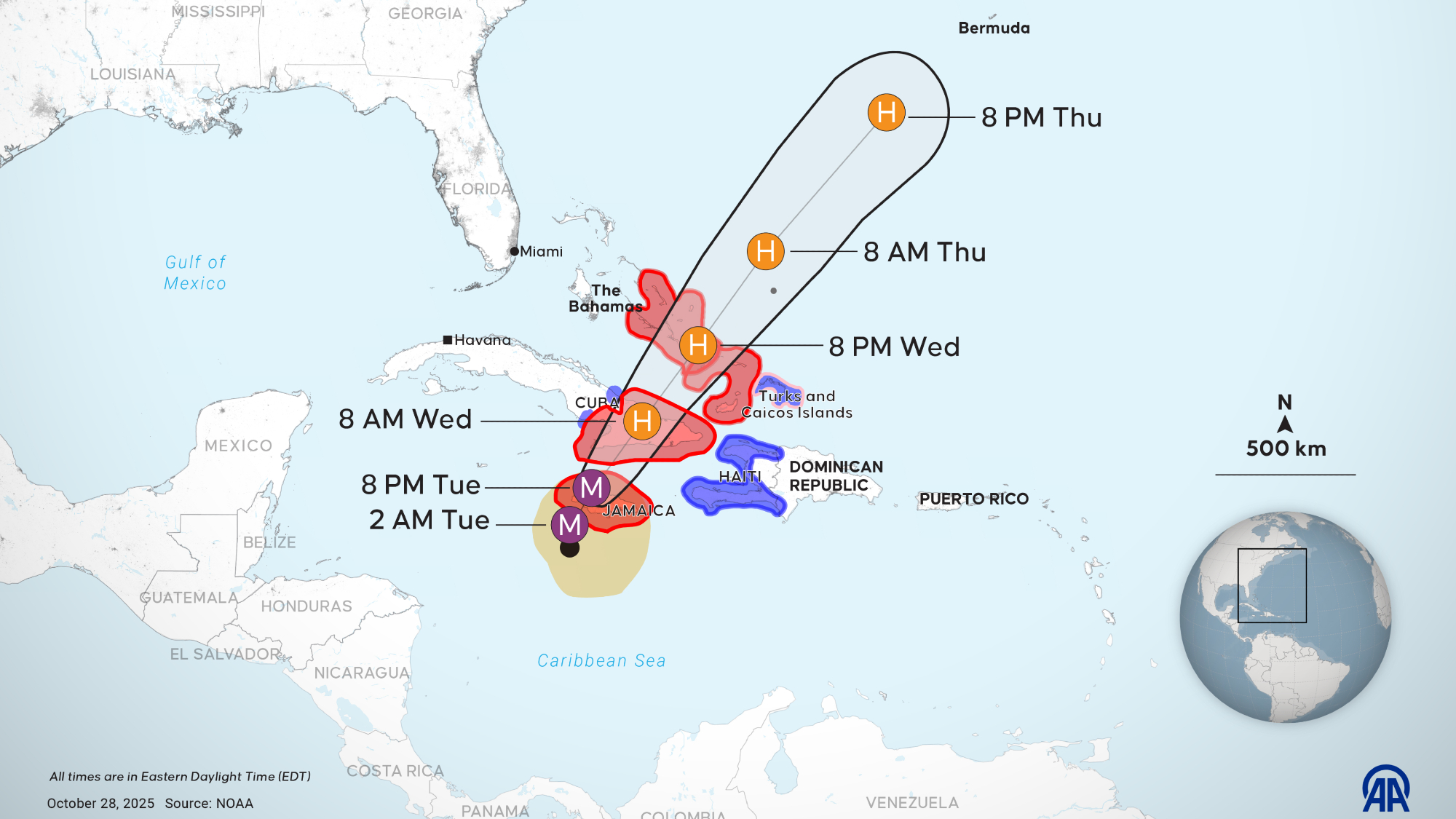 Hurricane Melissa slams Jamaica as Category 5 storm
Hurricane Melissa slams Jamaica as Category 5 stormSpeed Read The year’s most powerful storm is also expected to be the strongest ever recorded in Jamaica
-
 Is Britain turning into ‘Trump’s America’?
Is Britain turning into ‘Trump’s America’?Today’s Big Question Direction of UK politics reflects influence and funding from across the pond
-
 Entente cordiale: will state visit help UK-French relations get over Brexit?
Entente cordiale: will state visit help UK-French relations get over Brexit?Today's Big Question The King, a keen Francophile who has a warm relationship with Emmanuel Macron, will play a key role in state visit
-
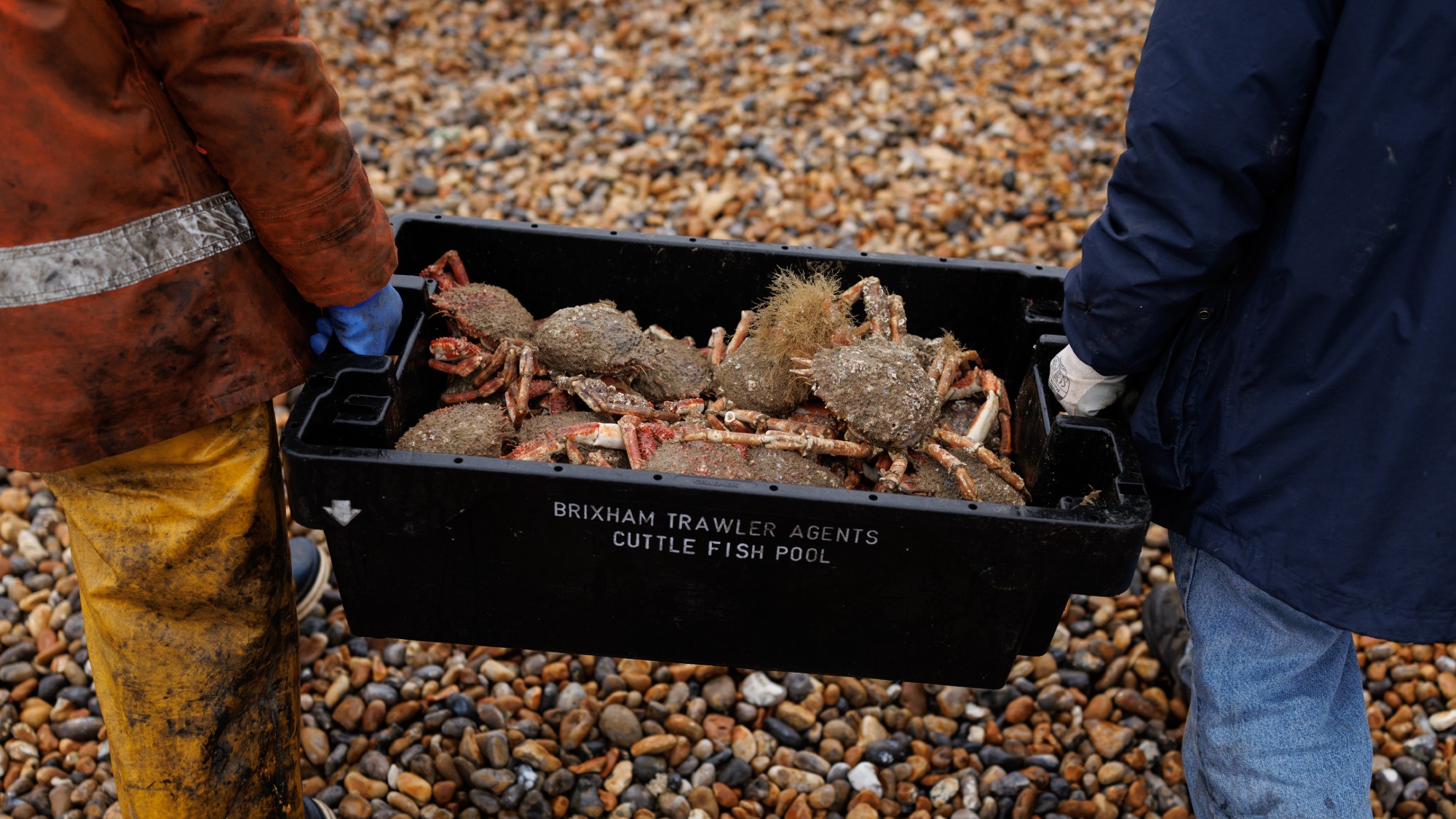 Brexit 'reset' deal: how will it work?
Brexit 'reset' deal: how will it work?In Depth Keir Stamer says the deal is a 'win-win', but he faces claims that he has 'surrendered' to Brussels on fishing rights
-
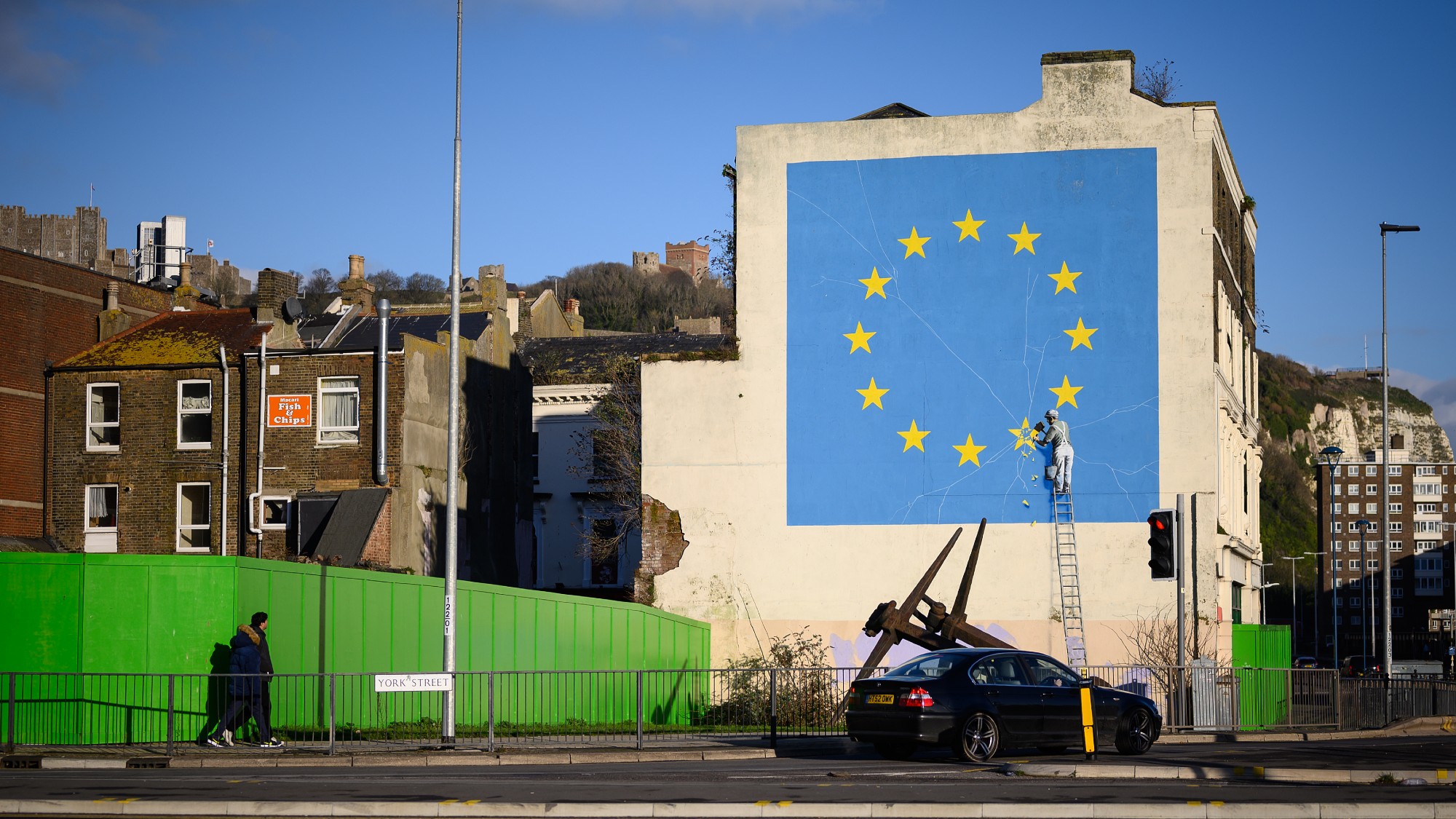 Are we entering the post-Brexit era?
Are we entering the post-Brexit era?Today's Big Question Keir Starmer's 'big bet' with his EU reset deal is that 'nobody really cares' about Brexit any more
-
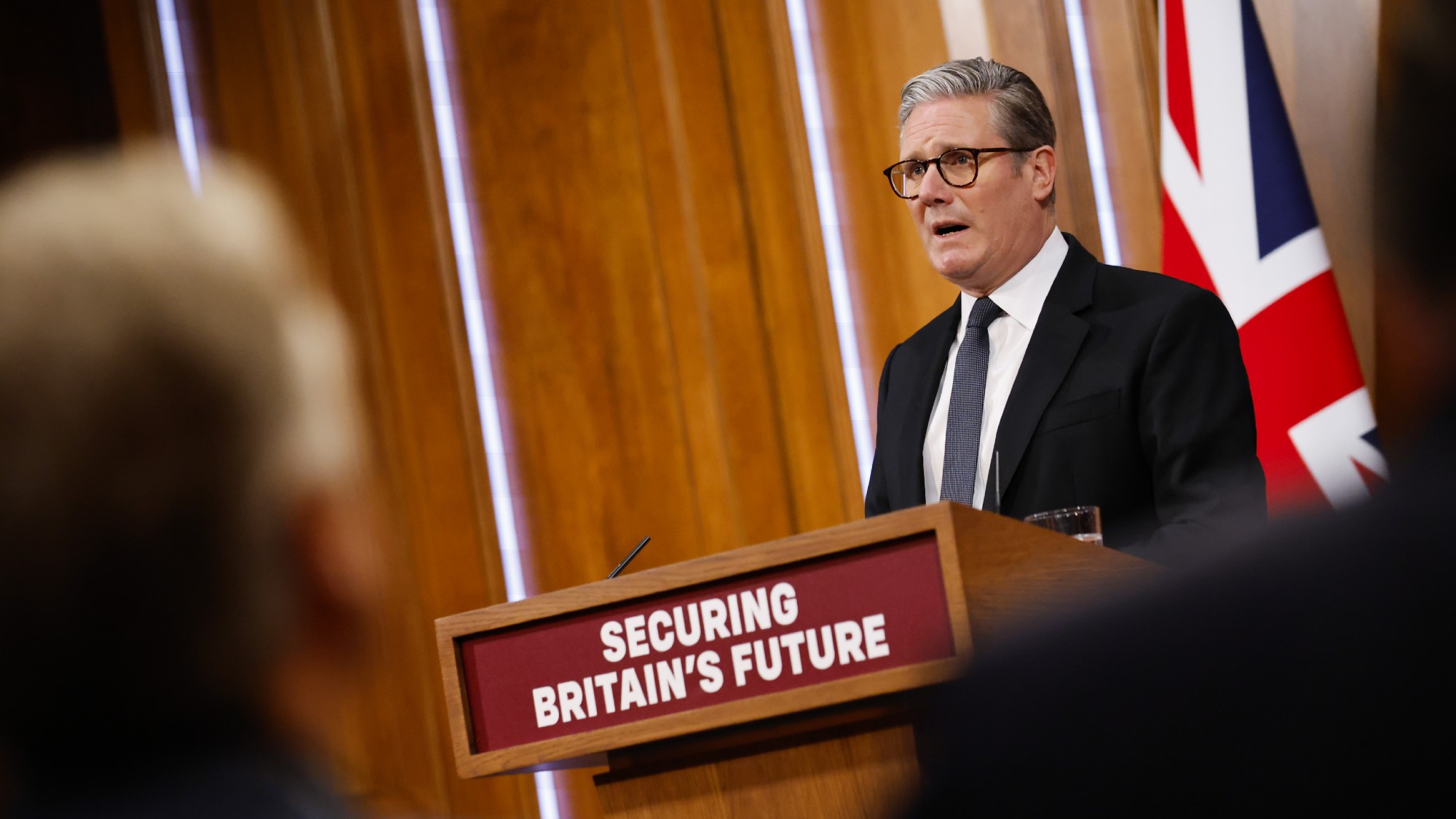 Can Starmer sell himself as the 'tough on immigration' PM?
Can Starmer sell himself as the 'tough on immigration' PM?Today's Big Question Former human rights lawyer 'now needs to own the change – not just mouth the slogans' to win over a sceptical public
-
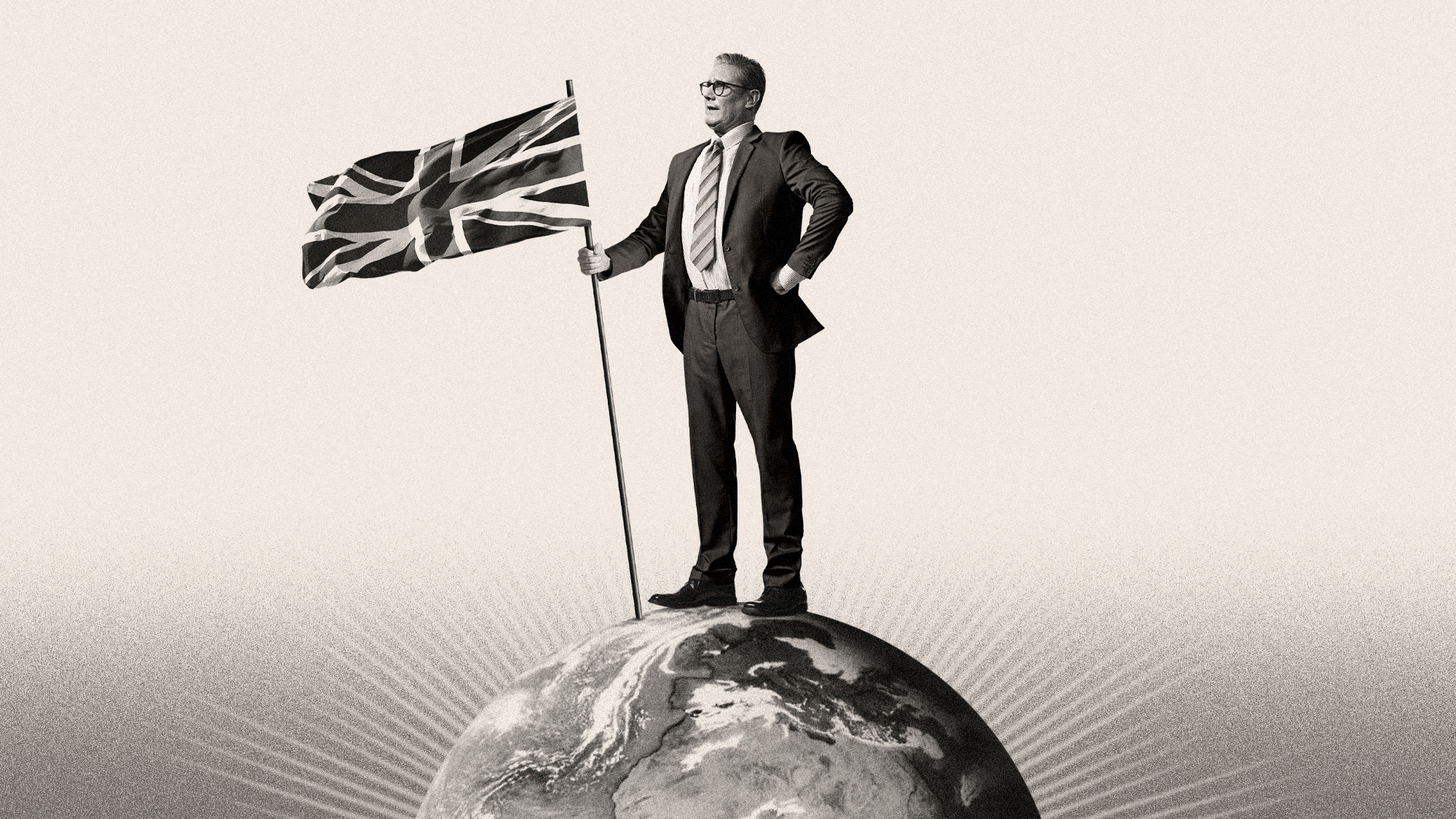 Has Starmer put Britain back on the world stage?
Has Starmer put Britain back on the world stage?Talking Point UK takes leading role in Europe on Ukraine and Starmer praised as credible 'bridge' with the US under Trump
-
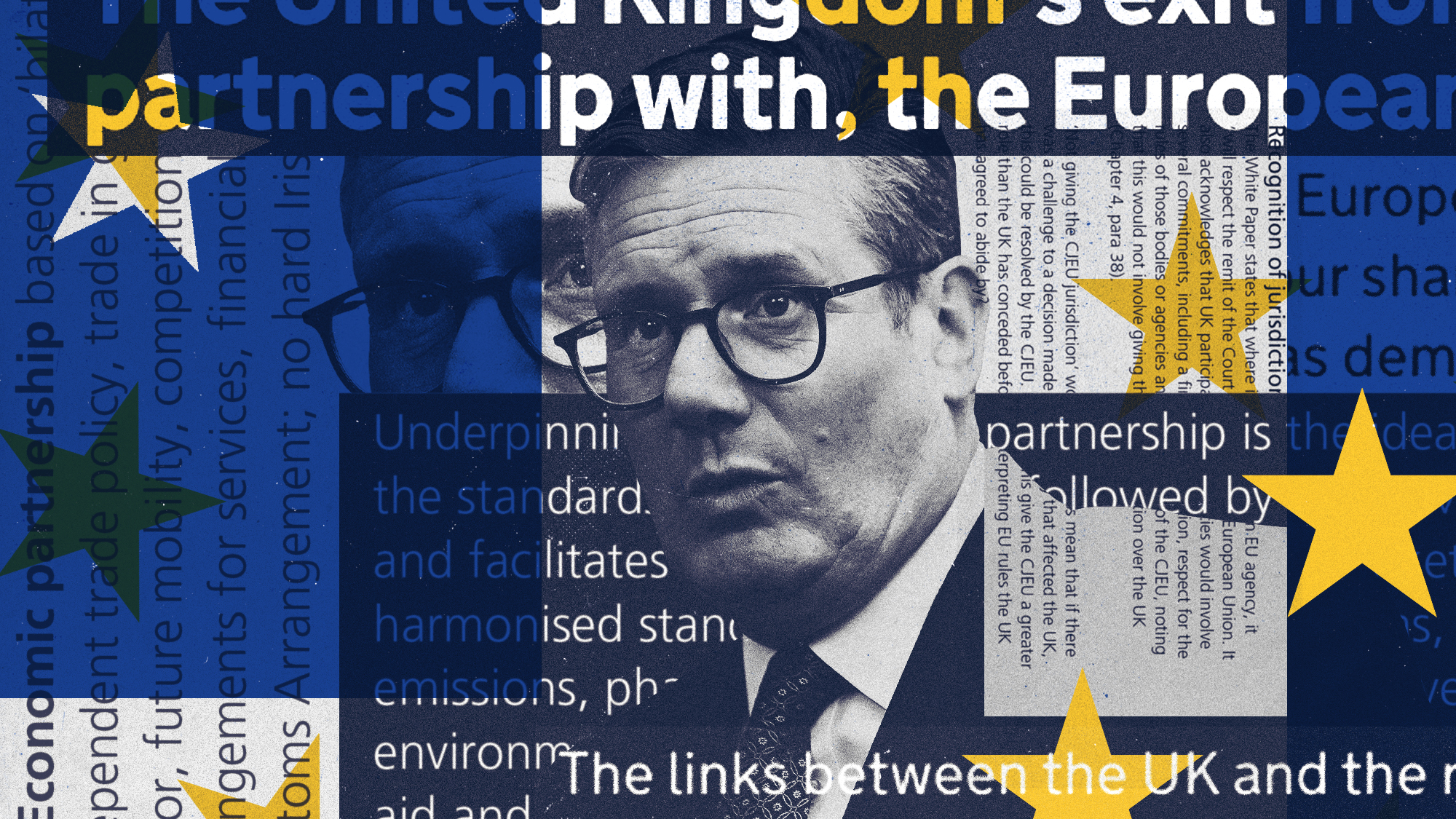 Will Starmer's Brexit reset work?
Will Starmer's Brexit reset work?Today's Big Question PM will have to tread a fine line to keep Leavers on side as leaks suggest EU's 'tough red lines' in trade talks next year
-
 Will Donald Trump wreck the Brexit deal?
Will Donald Trump wreck the Brexit deal?Today's Big Question President-elect's victory could help UK's reset with the EU, but a free-trade agreement with the US to dodge his threatened tariffs could hinder it